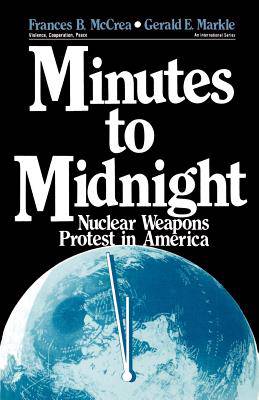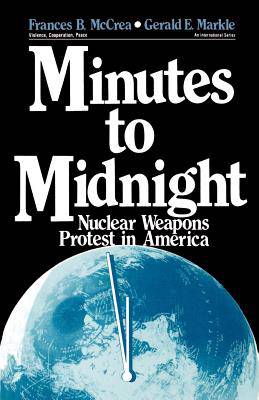
- Retrait gratuit dans votre magasin Club
- 7.000.000 titres dans notre catalogue
- Payer en toute sécurité
- Toujours un magasin près de chez vous
- Retrait gratuit dans votre magasin Club
- 7.000.0000 titres dans notre catalogue
- Payer en toute sécurité
- Toujours un magasin près de chez vous
216,95 €
+ 433 points
Format
Description
Recipient of the 1991 Scholarly Achievement Award of the North Central Sociological Association Minutes To Midnight is a timely examination of one of the preeminent moral, political, and economic dilemmas of our time. McCrea and Markle explore the dynamics of social movements behind antinuclear weapons campaigns in America--from the earliest post-war atomic scientists′ movement to the "ban the bomb" efforts to the ill-fated Freeze movement of the 1980s. The authors note that the atomic scientists′ movement was the first attempt by scientists--as scientists--to protest the uses of their own creation. They locate contemporary problems in their historical context by exploring the ways in which traditional pacifist groups provided the infrastructure and directly presaged--in strategy, tactics, and organizational dilemmas--the Freeze movement. The authors use their information on antinuclear protest activity as a way of understanding how social movements are founded, how they fare, and how social change occurs in postindustrial society. This highly readable book will be of interest to a broad interdisciplinary audience of scholars, professionals, graduate students, and upper-division undergraduates in political science, peace studies, American studies, sociology and the study of social movements, international relations, and history. "An excellent supplementary reading in college courses on social movements and political sociology. . . will stimulate discussion and debate on perhaps the most important issue of the century." --Contemporary Sociology "The book clearly applies social theory to richly described cases of American protests against nuclear weapons; admirably, the cases are viewed as linked within a broad historical context." --Louis Kriesberg, Syracuse University "For those interested in group theory. . . it does compile some useful information on the strategies and tactics of the various associations discussed. Upper-division undergraduates, graduate students, and general readers." --Choice
Spécifications
Parties prenantes
- Auteur(s) :
- Editeur:
Contenu
- Nombre de pages :
- 200
- Langue:
- Anglais
- Collection :
- Tome:
- n° 3
Caractéristiques
- EAN:
- 9780803934184
- Date de parution :
- 01-12-89
- Format:
- Livre broché
- Format numérique:
- Trade paperback (VS)
- Dimensions :
- 141 mm x 215 mm
- Poids :
- 290 g

Les avis
Nous publions uniquement les avis qui respectent les conditions requises. Consultez nos conditions pour les avis.






